From there, the article provides policy recommendations to build a sustainable ecosystem, promoting the development of innovative startups in Vietnam.
Drivers and barriers for innovation actors
Research and development organization
According to the Vietnam Science, Technology and Innovation Book 2024, by 2023, Vietnam will have about 461 R&D organizations. These organizations are mostly concentrated in two major economic centers, Hanoi and Ho Chi Minh City. In the context of innovation becoming a pillar of economic development, research institutes, universities and R&D centers are under pressure to commercialize research results. Practice has shown that many units have actively participated in the innovation startup ecosystem, typically Hanoi University of Science and Technology with BKAI Center or Phenikaa University with Phenikaa Research and Technology Institute. When connecting to the ecosystem, these organizations have the opportunity to test technology in practice, receive feedback from the market and thereby improve their products.
Successful research transfer not only brings revenue from licensing and consulting services, but also helps R&D organizations enhance their reputation and competitiveness. Hanoi University of Science and Technology or Ho Chi Minh City National University are typical examples of this trend when expanding cooperation with businesses in areas such as: Artificial Intelligence (AI), high-tech agriculture , biotechnology... However, a major barrier is that the mechanism for evaluating research staff in Vietnam still mainly focuses on international publications (Web of Science/Scopus) without clear criteria for commercialization. This makes cooperation with startups not considered a core strategy of R&D organizations.
Intellectual property consulting organization
In the innovation startup ecosystem, IP consulting and service organizations play a key role in helping innovation startups protect their intellectual property. This helps to enhance value and competitiveness, increasing opportunities to raise capital. Currently, in addition to more than 200 private industrial property representatives, university-affiliated IP consulting units such as the IP Center of Ho Chi Minh City University of Law or Ho Chi Minh City National University are also actively participating. They provide diverse services from protection registration, long-term strategic consulting, intangible asset valuation to developing commercial exploitation plans.

The author team of the product "Mobile isolation hat to prevent COVID-19 Vihelm" participated in the performance at the Opening Ceremony of the National Innovation and Startup Festival TECHFEST Vietnam 2020 in Hanoi (Source: VJST/Vu Hung).
The launch of the Industrial Property Information Data and Services Platform (IPPlatform) managed by the National Institute of Intellectual Property (Ministry of Science and Technology) is a remarkable step forward, helping startups easily look up data and connect to online protection services. However, the biggest barrier lies in the awareness of businesses. Many startups have not yet proactively protected IP from the beginning, leading to the risk of losing priority rights and facing difficulties in raising capital. Statistics show this: out of nearly 4,000 startups in Vietnam, only about 15% have registered patents, industrial designs or trademarks. This rate is quite low compared to developed innovation startup ecosystems in the world.
In addition, administrative barriers also cause difficulties for startups. The patent examination process still takes 24-36 months or even longer, causing obstacles for businesses. Some consulting organizations still apply the traditional service model, lacking flexible packages suitable for the limited budget of startups. The shortage of experts in emerging fields such as AI, Blockchain or biotechnology also limits the ability to advise and value intellectual property.
Business incubators and accelerators
In the Vietnamese innovation startup ecosystem, incubators are increasingly asserting their important role. Diverse models have emerged, from university units such as BK Holdings (Hanoi University of Science and Technology), local ones such as SIHUB in Ho Chi Minh City, to private initiatives such as Song Han Incubator (Da Nang). The main function of incubators is to provide co-working space, training courses, in-depth consulting and connection with investors. In particular, in the pre-commercialization phase, these 6-12 month programs help startups test their ideas, perfect their business models and access initial funding sources.
However, many incubators still face major resource barriers. According to a report at Techfest Vietnam 2023, more than 60% of these units depend on the state budget or international funding, leading to a lack of sustainable operating models. This makes it difficult to scale up, attract high-quality advisors and invest in specialized facilities such as testing labs. Another barrier is the shortage of experts and consultants specialized in high-tech fields such as AI and Blockchain.
Some small-scale incubators have difficulty in selecting potential startups due to the lack of a network of partners and advisors, along with a non-transparent selection process. Moreover, the "take equity" model (exchanging shares for support) does not attract many startups at the idea stage, causing fear. In particular, high-tech fields require specialized infrastructure (laboratories, testing equipment) that most incubators in Vietnam currently cannot meet.
Innovative startups and investors
Acting as the core of the ecosystem, innovative startups and investors are the direct force in creating new technologies, products and business models. According to data from the Ministry of Science and Technology, by 2024, Vietnam will have about 4,000 innovative startups operating, mainly in the fields of financial technology, education technology, e-commerce and high-tech agriculture. However, in reality, early-stage startups often face three major challenges: lack of capital, lack of management skills and lack of networking.
In that context, the role of venture capitalists (VCs) and angel investors becomes particularly important. They provide capital, support startups in building strategies, management systems and connecting with international expert networks. Many investment funds such as Do Ventures, Nextrans or ThinkZone Ventures have been performing this role. According to Ziegler & Wessner (2012), VCs accept high risks because of the expectation of outstanding profits, with profits that can be up to 10-100 times the initial investment if the startup is successful...

High-level forum Connecting resources to support innovative startups (Source: VJST/Vu Hung).
However, venture capital also faces a very high failure rate for early-stage startups, which can be as high as 70-90%. In addition, the lack of transparent financial information, unproven business models and limited management capacity of startups make the investment due diligence process complicated. Some new investment funds also face difficulties due to the lack of network connections with incubators or national programs such as Techfest, leading to missing out on many potential deals.
Recommendations
From the above analysis, it can be seen that although each entity in the innovation startup ecosystem has its own motivation, they all face common barriers such as: Lack of capital, limited commercialization capacity, lack of information transparency and complicated administrative procedures. To build a sustainable and effective ecosystem, here are some policy recommendations:
First, reform the IP process. It is necessary to shorten the time for assessing and granting IP certificates to businesses, simplify procedures and prioritize the review of technologies on the national strategic list. This helps businesses quickly protect intellectual property, speed up market access and raise capital.
Second, the Government needs to have stronger incentive policies for nurseries such as: Exemption or reduction of income tax for the first 10 years, reduction of land use tax and support for operating costs. This will help them improve service quality and invest in better facilities.
Third, it is necessary to research and establish a separate credit guarantee fund for start-up businesses. This fund will help start-up businesses access loans from commercial banks with preferential interest rates, reducing financial burdens in the initial stage.
Fourth, it is necessary to issue preferential policies (taxes, fees, etc.) to encourage experts, consultants and angel investors to participate in the innovation startup ecosystem for a long time. Along with that, investing in shared technical infrastructure such as labs and makerspaces at local innovation centers. The formation of specialized incubators will also help startups and R&D organizations save costs and shorten product development time.
Fifth, it is necessary to build a digital platform that integrates information about the innovation startup ecosystem, including data on startups, funding rounds, R&D results, support organizations and investors. This platform will help stakeholders easily look up, connect and make decisions based on practical data.
Sixth, prioritize the construction of technology clusters (innovation clusters) in each field. These clusters will connect the value chain from R&D to commercialization, creating an integrated innovation startup space. At the same time, it is necessary to proactively cooperate with international startup support programs and funds from Japan, Korea, and Israel to help Vietnamese startups access capital, strategies, and global markets.
The innovative startup ecosystem in Vietnam is still facing many challenges, from financial barriers, infrastructure limitations to lack of specialized support resources. However, positive signals have been shaping a promising development platform. The driving force from the main actors: R&D organizations; IP consulting organizations; incubators, business promotion organizations; startups, investors is increasingly clear and the links from research to commercialization are gradually being strengthened. When institutions are flexibly improved, technical infrastructure, capital and human resources are strengthened... the innovative startup spirit will be nurtured as a cultural value and Vietnam can fully expect the birth of startups with global breakthrough capacity. This is the driving force for economic growth, the key for Vietnam to enter a development stage based on self-reliance in science, technology and innovation./.
Source: https://mst.gov.vn/chu-the-tham-gia-he-sinh-thai-khoi-nghiep-doi-moi-sang-tao-dong-luc-rao-can-va-khuyen-nghi-197251122181543127.htm






![[Photo] Close-up of heavy damage at the school located on the banks of the Ban Thach River](/_next/image?url=https%3A%2F%2Fvphoto.vietnam.vn%2Fthumb%2F1200x675%2Fvietnam%2Fresource%2FIMAGE%2F2025%2F11%2F26%2F1764152130492_ndo_bl_img-8188-8805-jpg.webp&w=3840&q=75)

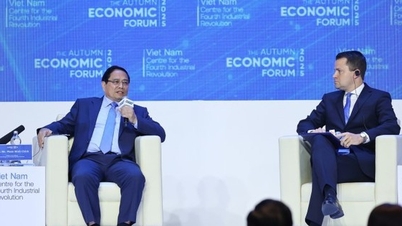












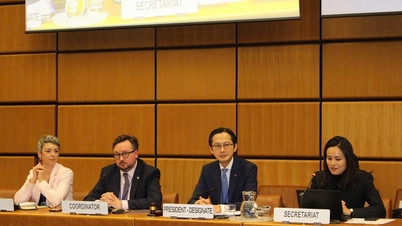
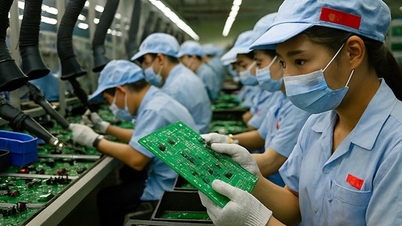


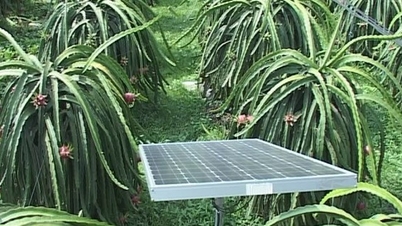













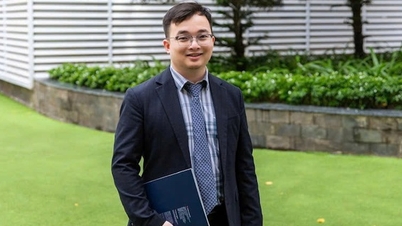









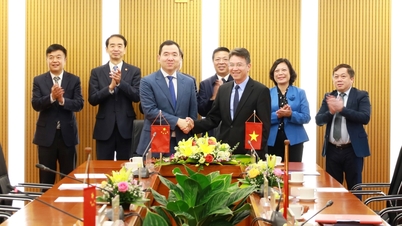



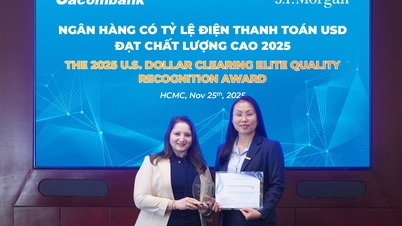

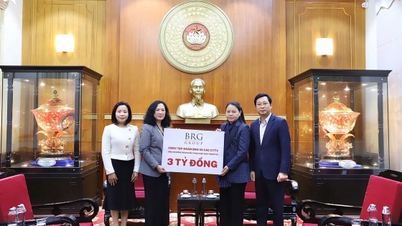












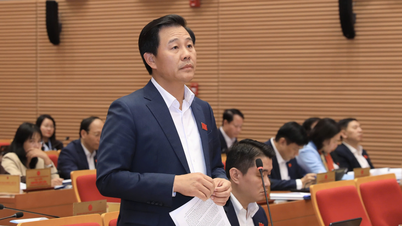
![[Photo] Opening of the 28th Session of the Hanoi People's Council](https://vphoto.vietnam.vn/thumb/402x226/vietnam/resource/IMAGE/2025/11/26/1764155991133_image.jpeg)



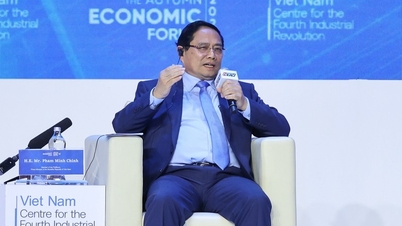
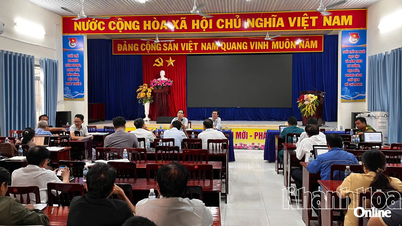





















Comment (0)